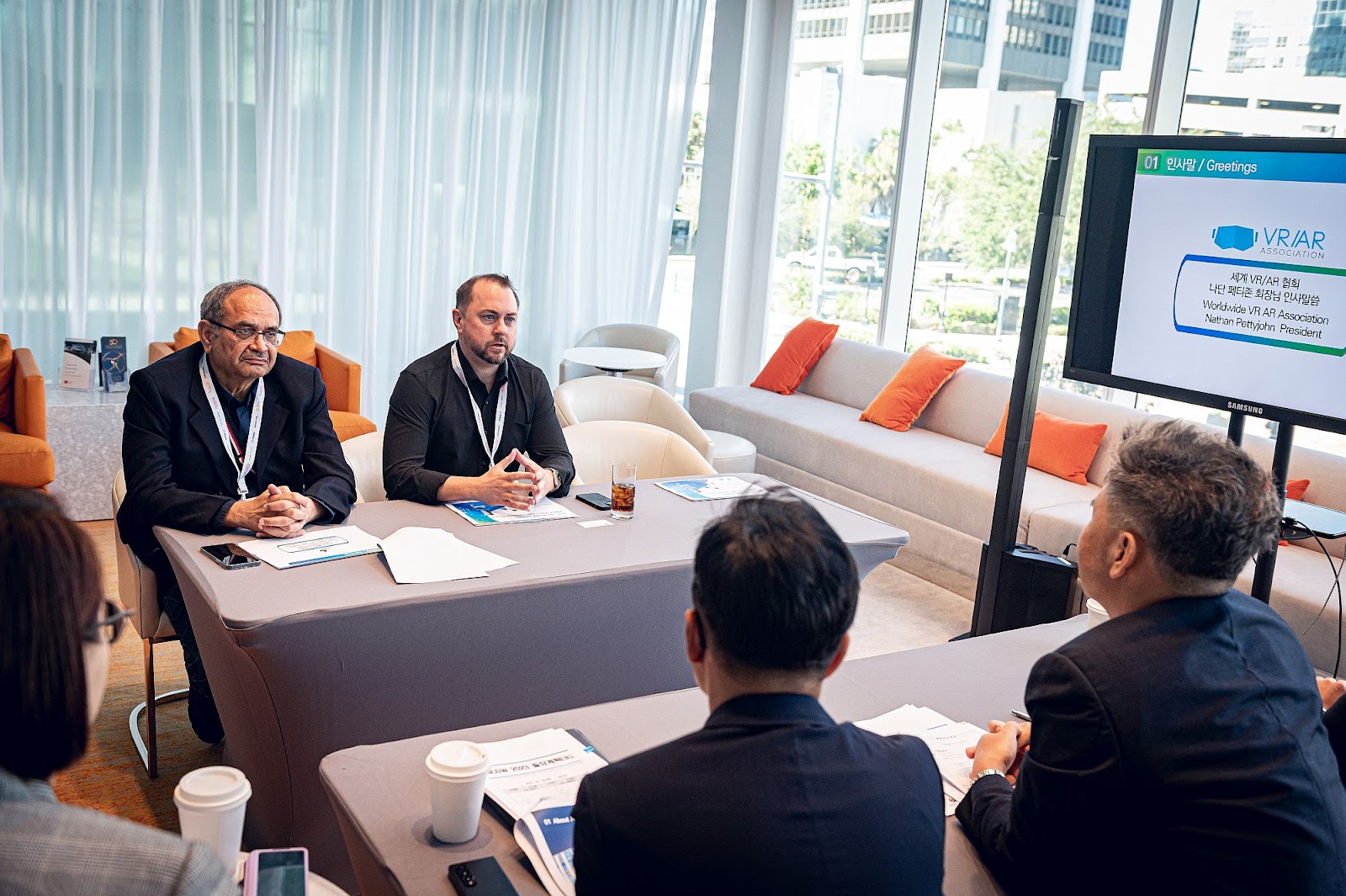SAN FRANCISCO, CA / ACCESS Newswire / July 24, 2025 / When Nathan Pettyjohn founded the VR/AR Association in 2015, venture capitalists called it "too early." When he started implementing AI systems, colleagues said he was "overthinking productivity." Today, his portfolio of four companies generates millions while he works just two days a week.

"Reid Hoffman says the best entrepreneurs are contrarians who are right," notes Pettyjohn. "Being early isn't comfortable, but it's the only competitive advantage that matters in exponential times."
The $13 Trillion Prediction
McKinsey projects that 70% of companies will adopt AI by 2030, creating $13 trillion in additional global economic activity. Pettyjohn is already living in that future - and teaching others how to join him.
"When we started the VR/AR Association, people thought virtual reality was just for gaming," Pettyjohn recalls. "Now it's transforming surgery, education, and manufacturing. The same pattern is playing out with AI and the future of work, only much faster, and with near immediate ROI."
His foresight has paid dividends:
The VR/AR Association became the industry's definitive organization before the market exploded
His AI implementation strategies, now power four companies
Over 80,000 professionals have attended events, and programs by his companies
Living in 2030 Today
Pettyjohn's current work model offers a preview of widespread practices by decade's end:
AI-First Operations: "By 2030, having an AI assistant will be like having email today - universal and unremarkable. We're already there. Every team member should have AI tools handling 60-70% of their routine tasks."
Trust-Based Management: "Command-and-control died with the knowledge economy. Teams should have full autonomy within clear frameworks. Results matter, not face time."
Outcome Economics: "We've eliminated hourly thinking entirely. Team members are compensated based on value creation, not time spent. It's revolutionary for retention and results."
The Acceleration Timeline
Pettyjohn maps the transformation in three waves:
Wave 1 (2024-2026): Early adopters gain massive advantages
10x productivity gains for those who move first
Traditional companies begin struggling to compete
AI proficiency becomes a hiring requirement
Wave 2 (2026-2028): Mainstream adoption forces structural change
4-day work weeks become standard in tech
Hybrid AI-human teams outperform traditional structures
Geographic barriers to talent disappear
Wave 3 (2028-2030): New equilibrium emerges
2-day executive work weeks become achievable
Company size decouples from output
Individual productivity reaches unprecedented levels
"Stanford research shows we're experiencing the fastest workplace transformation in history," Pettyjohn notes. "Those who don't adapt won't just fall behind - they'll become irrelevant."
Your Future Starts Now
Pettyjohn's books - 2-Day Workweek and AI Wants Your Job - provide the roadmap for navigating this transformation. His workshops through The Immerse Group offer hands-on implementation.
"The future isn't something that happens to you," Pettyjohn emphasizes. "It's something you design. We're providing the blueprint."
For leaders ready to step into tomorrow, visit www.nathanpettyjohn.com.
San Francisco, California
nathan@theimmersegroup.com
https://www.theimmersegroup.com
Nathan Pettyjohn
The Immerse Group
SOURCE: The Immerse Group
View the original press release on ACCESS Newswire



